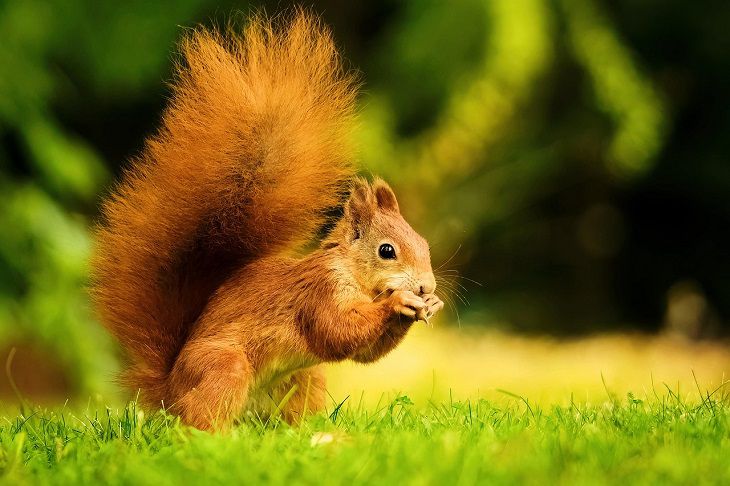A case of mass contact between people and a rabid squirrel has been registered in Borisov
On September 6, a case of mass contact between people and a rabid squirrel was registered in Borisov.
This was reported by the press service of the Minsk Regional Center for Hygiene, Epidemiology and Public Health.
What happened
As reported by the regional Center for Hygiene and Public Health, employees of the furniture company discovered a squirrel on the territory of the organization, put it in a cage, where the animal spent the whole night.
The next morning, the squirrel began to run around the cage and convulse, foaming at the mouth.
The animal died in the afternoon. The company's employees reported the incident to the district veterinary station.

Veterinary station specialists removed the squirrel's body in compliance with biosafety requirements. The regional veterinary laboratory established a postmortem diagnosis of rabies.
The Borisov zonal Center for Hygiene and Epidemiology promptly launched an epidemiological investigation. People who had been in contact with the squirrel were identified. Among them was a child born in 2020.
All those who had contact with the animal were referred to a surgeon for examination and, if necessary, anti-rabies treatment.
The regional Center for Hygiene, Epidemiology and Public Health noted that any warm-blooded animal with salivary glands can be a carrier of the rabies virus.
The virus is transmitted through direct contact of the saliva of an infected animal with the mucous membranes, scratches, and wounds on human skin.
Very rare cases of infection have been described through inhalation of virus-containing aerosols or transplantation of infected organs.
Therefore, not only bites are dangerous, but also scratches inflicted by a sick animal, as well as drooling on mucous membranes and damaged skin (even slightly).
It is impossible to cure a person with rabies, it is a fatal disease. Treatment is limited to alleviating the general condition of the patient.
The only treatment and preventive measure against rabies is vaccination. The earlier the course is started, the higher the probability of a successful outcome.
In no case should you refuse vaccination or interrupt it without permission.
The course of preventive vaccinations consists of six injections on the 1st, 3rd, 7th, 14th, 30th and 90th days after the bite. The timing of vaccination is determined by the doctor.
Children often suffer from animal bites, so it is important to educate them and avoid unnecessary contact with animals.
It is also important to consider that the child may not report the bite.
Epidemiologists recommend avoiding contact with stray and wild animals. Do not take homeless or sick animals from the street, pick up wild animals in the country, in the forest, etc.
Those who have been bitten/scratched/drooled should contact the nearest medical facility for examination and, if necessary, receive anti-rabies treatment.
